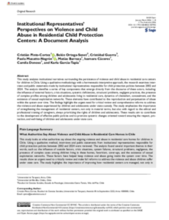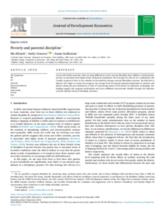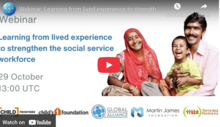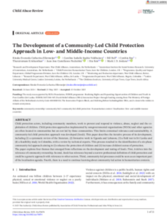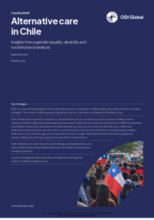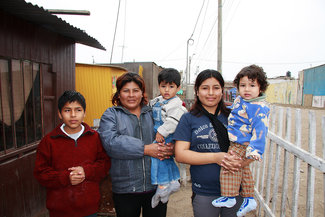

Displaying 1 - 10 of 348
This article reports on Swedish adults who were adopted from Colombia decades ago and are now searching for their birth mothers after discovering that many international adoptions — involving around 60,000 children including nearly 5,700 from Colombia — were marred by irregularities such as false documentation, coerced consent, and children declared orphans when they were not, leaving adoptees without accurate identity information and grappling with psychological impacts of lost heritage.
This qualitative study analyzes institutional narratives between 2002 and 2024 to understand how violence and child abuse have persisted in residential care centers in Chile, drawing on interviews and public statements from child protection authorities. The findings identify systemic deficiencies, structural problems, negligent practices, concealment, and sexual exploitation networks as key factors perpetuating abuse, underscoring the urgent need for comprehensive reforms, stronger oversight, and enhanced ethical and professional standards to safeguard the rights and well-being of children under state care.
This study examines how the introduction of a conditional cash transfer program in Peru affects parental discipline practices. It finds that in districts receiving the program, reports of physical punishment by mothers and fathers among low-income families decrease by at least 2.7 percentage points (11%), suggesting the program may provide additional benefits by reducing harsh disciplinary practices.
This article critically analyzes the complex journey undertaken by foster families who decide to adopt the children or adolescents they initially cared for on a temporary basis. Through the study of four cases, it examines the experiences and perspectives of Chilean families who chose to transform their role from foster care to adoption, presenting narratives that highlight the controversies, inconsistencies, and tensions between the logics of temporary and permanent care within the Chilean child protection system.
This article presents a comparative analysis of the Czech Republic and Colombia’s implementation of the United Nations Guidelines for Alternative Family Care. Based on secondary data, it identifies a shared adherence to the UN framework; a strong Czech system for alternative caregivers’ selection, training and support; a deep ethical commitment of Colombian foster families to ensure children’s well-being, despite limited resources; and the relevance of supporting parents at risk of having their children removed from their care and integrating the effects of unplanned migration into alternative care strategies.
This webinar showcased the learning from Strengthening the Social Service Workforce for Family-Based Care, a two-year project implemented by the Global Social Service Workforce Alliance, with technical support from Child Frontiers, under a grant f
This paper outlines the development of a community-led child protection approach (Seeds), created through a multi-stage process involving a systematic literature review, formative research in Uganda and Lebanon, a field test in Sri Lanka, a feasibility study in Colombia, and expert review, resulting in a six-phase model designed to strengthen children’s protection and their sense of safety.
El artículo de Contraeditorial presenta una entrevista con Dana Borzese, directora de Doncel, quien advierte que Argentina atraviesa un momento crítico para las infancias debido al desmantelamiento de las política
This brief analyses the state of alternative care for children in Chile, highlighting key statistics, sectoral findings and areas for policy improvement. It is part of a broader analysis of gender equality, disability and social inclusion (GEDSI) in Chile. The analysis draws on existing literature, government reports and key informant interviews (KIIs) with stakeholders working in this area.

